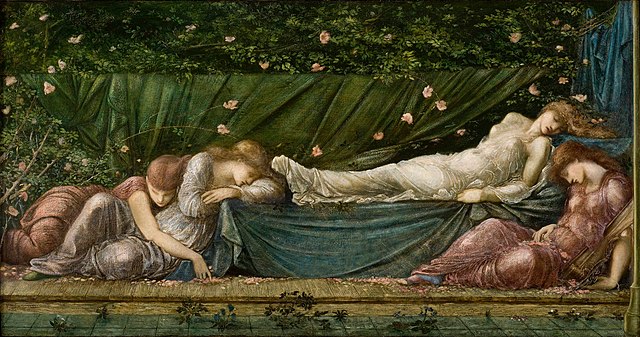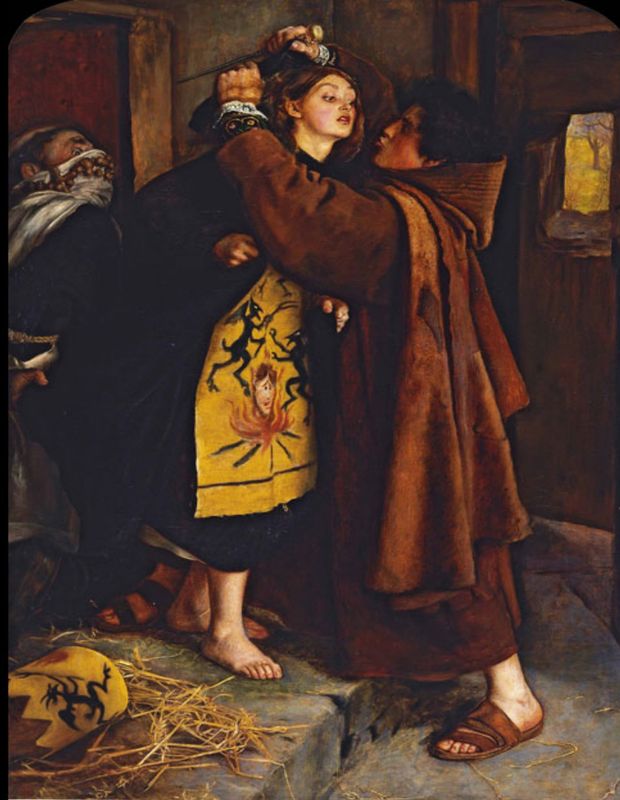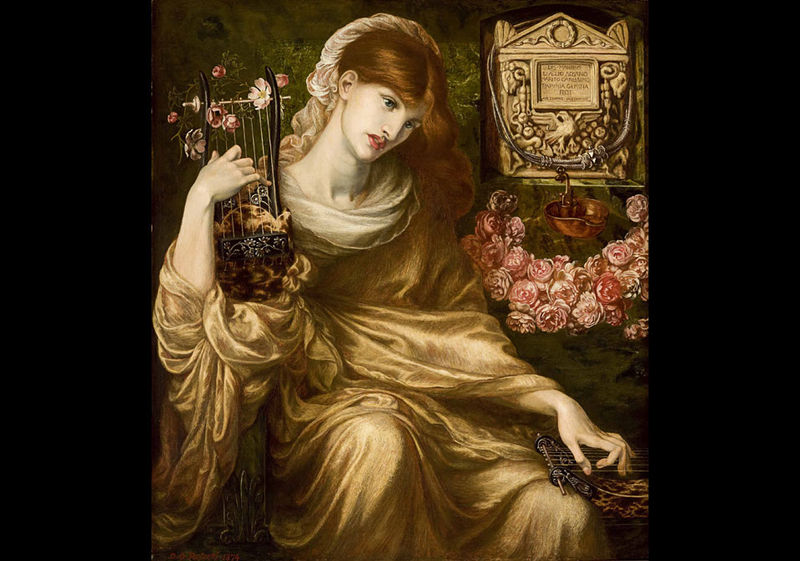
Flaming June, Lord Leighton. Museo de Arte de Ponce.
For the first time in Spain the Museo del Prado presented a selection of 19th-century English paintings from the Museo de Arte de Ponce. Entitled The Sleeping Beauty. Victorian Painting from the Museo de Arte de Ponce, the exhibition offers the visiting public a unique opportunity to see works of the stature of Flaming June by Frederic, Lord Leighton and Edward Burne-Jones’ monumental masterpiece, The Last Sleep of Arthur in Avalon.
For historical reasons, 19th-century British art is one of the least well represented areas in Spanish collections, including that of the Prado, which has very few examples of Victorian painting. For this reason the Museo del Prado has decided to organise the present exhibition, which offers a carefully chosen selection of English paintings. They are loaned by the Museo de Arte de Ponce, Puerto Rico, which is temporarily closed for re-modelling, and include The Last Sleep of Arthur in Avalon by Edward Burne-Jones, and Flaming June by Frederic, Lord Leighton. Both paintings will travel to the Prado after their display at Tate Britain.
The exhibition comprised 17 works in total, of which 10 are paintings and 6 are drawings and a watercolour. It allowed the public to become acquainted with both 19th-century English painting and with highlights of the museum founded in Ponce.
The exhibition also included paintings by artists such as John Everett Millais (1829-1896), Dante Gabriel Rossetti (1828-1882), Thomas Seddon (1821-1856) and William Holman Hunt (1827-1910). They were painted during the various different phases of the movement known as the Pre-Raphaelite Brotherhood, which was founded in 1848 with the initial aim of reforming English painting, at that date governed by the conservative strictures of the Royal Academy. The Pre-Raphaelites based themselves on a new vision of nature and on their quest to rediscover the aesthetic innocence of the Early Renaissance painters.
Among the outstanding works to be seen in the exhibition was Burne-Jones’ masterpiece, The Last Sleep of Arthur in Avalon. Prior to being seen at Tate Britain it has remained in Puerto Rico since Luis Ferré acquired it in the 1960s due to its importance for his collection and the difficulties involved in transporting a work that measures more than 6 metres wide. Burne-Jones devoted the last years of his life to this painting, which reflects his fascination (shared with fellow artists such as Rossetti and William Morris) for the legend of King Arthur. He constantly re-worked the composition up to the day before his death. Exhibited alongside this great work was a series of preliminary sketches and preparatory drawings that will help the visitor to appreciate the evolution of this dreamlike image.
The exhibition includes outstanding examples of works by the founders of the Pre-Raphaelite Brotherhood, including Miss Gladys M. Holman Hunt by William Holman Hunt, the artist who remained most faithful throughout his career to the group’s motto of “Truth to Nature”; Escape of the Heretic, 1559 by John Everett Millais, which is a characteristic example of the use of imaginary anecdotes as a means of expressing universal human sentiments; and The Roman Widow by Dante Gabriel Rossetti, a work that forms part of a lengthy series of enigmatic, half-length female portraits that were in part influenced by the Venetian Renaissance portrait.
Other works in the exhibition:

Edward Coley Burne-Jones, The Sleeping Beauty from the small Briar Rose series. Oil on canvas, 60 x 115 cm. San Juan de Puerto Rico, Museo de Arte de Ponce.
._Oil_on_panel,_122.5_x_982_cm._San_Juan_de_Puerto_Rico,_Museo_de_Arte_de_Ponce.jpg/461px-William_Holman_Hunt,_Miss_Gladis_M._Holman_Hunt_(The_School_of_Nature)._Oil_on_panel,_122.5_x_982_cm._San_Juan_de_Puerto_Rico,_Museo_de_Arte_de_Ponce.jpg)
William Holman Hunt, Miss Gladis M. Holman Hunt (The School of Nature). Oil on panel, 122.5 x 982 cm. San Juan de Puerto Rico, Museo de Arte de Ponce.

John Everett Millais, The Escape of a Heretic. Oil on canvas, 106.2 x 76.2 cm. San Juan de Puerto Rico, Museo de Arte de Ponce.

Edward Coley Burne-Jones, The Prince enters the Wood from the small Briar Rose series. Oil on canvas, 60 x 127.5 cm. San Juan de Puerto Rico, Museo de Arte de Ponce.

Dante Gabriel Rossetti, Roman Widow (Dîs Manibus). Oil on canvas, 103.7 x 91/2 cm San Juan de Puerto Rico, Museo de Arte de Ponce